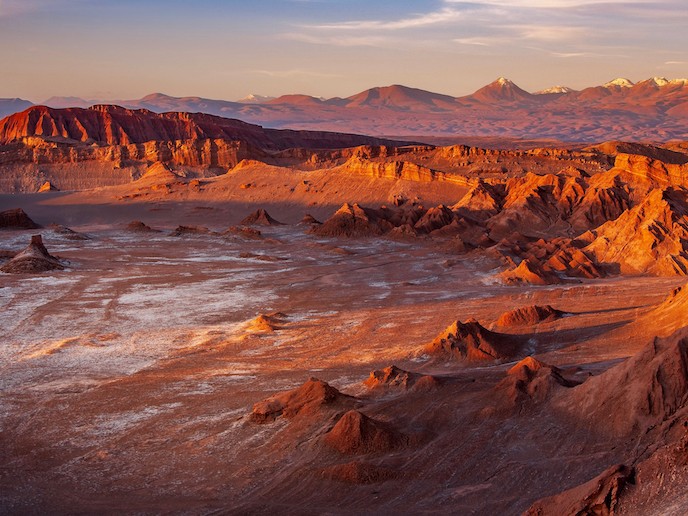Rethinking water management
The push in many countries for carbon neutrality has led to policies replacing fossil fuel use with lithium-ion batteries to electrify transport. However, if not properly thought through, those policies risk damaging the environment in countries where lithium is mined, found EU project INVISIBLE WATERS. Research fellow Cristóbal Bonelli, with support from the Marie Skłodowska-Curie programme, spent 2.5 years investigating aquifers – geological forms containing water sources deep underground – in the Atacama Desert in northern Chile, the driest desert in the world. Coordinated by the IHE Institute for Water Education(opens in new window) in the Netherlands, Bonelli’s findings spurred him to contribute to the setting up of a global consortium called Transformations to Groundwater Sustainability (T2GS)(opens in new window) to discuss ways to make the use of groundwater across the planet more sustainable. He is now arguing for a new approach to planetary decarbonisation and water governance based on a better understanding of the geopolitics underlying it. “The main conclusion I drew was that groundwater governance cannot be thought of as separate from other global mechanisms,” says Bonelli. “We need to understand the geo-politics in which water is a central actor. And the discipline of hydrology is insufficient alone to understand the sustainability of aquifers because there is also a political implication regarding water governance that exceeds technical solutions.”
Global demand
The demands of countries like China for electric vehicles has led to lithium being extracted and imported from countries like Chile where it is mined from the brine in aquifers. “That means mining lithium equals mining water,” says Bonelli. “There is more and more evidence of environmental degradation caused by lithium extraction. This is a big paradox because, to implement a post-fossil fuel society, what we are doing is basically disrupting some ecologies in order to create sustainable societies elsewhere.” Even though China has huge reserves of lithium itself, it also imports from Chile to fuel a government push to produce electric cars powered by lithium-ion batteries. While this new industry has created jobs, it also puts pressure on water resources in a place where water was privatised under former dictator Augusto Pinochet via a system that reduced state supervision. Bonelli believes today’s neo-liberal market system still dangerously divides water ownership from the land. During INVISIBLE WATERS, he talked to communities in Chile who are protesting against the mining in order to protect groundwater in the desert. They are backed by environmental activists and by microbiologists, who carry out research into microorganisms living in the desert. “There is cutting edge research going on because they use the extreme conditions in the desert to study the water and life there and to think about life elsewhere on other planets,” explains Bonelli. “The Atacama Desert is so arid, similar to the planet Mars.” Bonelli intends to continue the work he began during INVISIBLE WATERS, including exploring how to recycle all the tonnes of lithium-ion batteries being produced, warning: “We need to rethink what we mean by decarbonisation. It shouldn’t just be about replacing fossil fuel with lithium in the form of batteries.”







